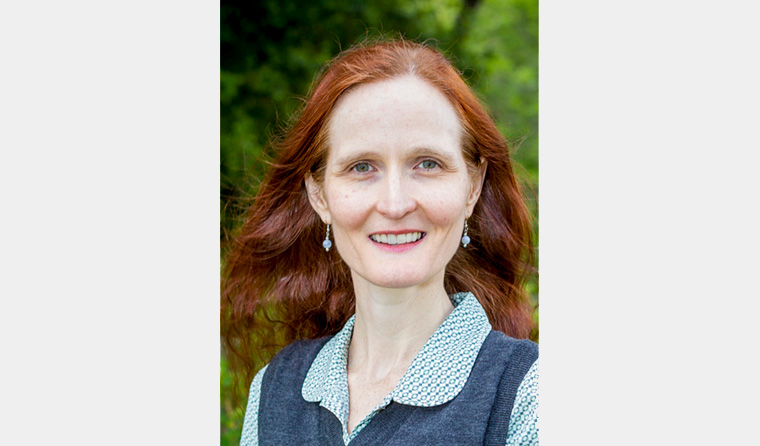News
Overworked junior doctors worried they will harm patients
A survey of junior doctors working in hospitals found nearly two-thirds fear making a clinical error due to exhaustion, sparking renewed calls for cultural change.
 It has been reported that fatigued junior doctors write in the wrong patient’s chart, incorrectly calculate medication and miss early signs of patient deterioration.
It has been reported that fatigued junior doctors write in the wrong patient’s chart, incorrectly calculate medication and miss early signs of patient deterioration.
More than half of the 1958 doctors-in-training who took part in the 2019 Hospital Health Check Survey also reported concerns about their own health and safety due to the hours they work.
Dr Genevieve Yates, Chair of the RACGP Expert Committee – Pre Fellowship Education, told newsGP that while the survey respondents are based exclusively at hospitals in NSW, she would not be surprised if other states and territories had similar issues.
‘Anecdotally, I think the problems are widespread throughout the country … there are so many factors involved,’ she said.
‘Although a lot has been done in principle to try and improve the situation, it is just not what happens on the ground. It’s very hard to change the culture.’
Dr Yates said having so many doctors admit they are at risk of making mistakes due to fatigue is ‘extremely significant’ and that cultural change is required to protect patients and clinicians.
‘It’s really worth noting that fatigue is such a dangerous thing when it comes to performance,’ she said.
‘If you’ve been working for 18 hours, you’re performing at the equivalent of a blood-alcohol level of 0.05 – so pretty much on the limit of being impaired.
‘If you spend 24 hours without sleep, it’s closer to a 0.1 blood-alcohol level.
‘There’s no way that we would let our doctors work while drunk, and yet, essentially via fatigue, that’s exactly what we’re doing.’
Aside from excessive hours, Dr Yates said shift work and the stressful nature of being a doctor can also have an impact on effectiveness.
‘This is very stressful work and people often have trouble sleeping after coming home from shifts in which there was a lot of emotional or challenging stuff happening, so the actual quality of sleep can also be affected,’ she said.
‘Likewise, when there’s a lot of shift work it also affects your body clock and circadian rhythms … which leads to increased impairment.’
Dr Tessa Kennedy, Chair of AMA Council of Doctors in Training, told The Age she has seen fatigued junior doctors write in the wrong patient’s chart, incorrectly calculate medication doses and miss early signs of patient deterioration, all of which ‘have the potential to cause harm’.
‘Part of the problem is that until someone crashes their car and dies, no one is terribly concerned by fatigue,’ she said.
‘But I suspect there are a number of errors and inefficiencies, not to mention just exhaustion and burnout … related to hours worked.
‘This is why junior doctors at every stage of training are leaving the profession and leaving this world because they are asked to do things that are just not possible.
‘It’s just not sustainable.’
 Dr Genevieve Yates, Chair of the RACGP Expert Committee – Pre Fellowship Education, likened the fatigue that comes from working especially long hours to being alcohol-impaired.
Dr Genevieve Yates, Chair of the RACGP Expert Committee – Pre Fellowship Education, likened the fatigue that comes from working especially long hours to being alcohol-impaired.
The survey focused on the experiences of junior doctors working in hospitals, but Dr Yates said it is not uncommon for general practice registrars to also experience similar issues.
‘Registrars and GPs in training are much better placed than those in the hospital system and yet they’re certainly not without their [workload] problems … particularly rural practices and those that have large amounts of on-call work,’ she said.
‘Certainly there are general practice registrars who have problems with fatigue management and we encourage them to talk to their RTOs [regional training organisations] and the RACGP.
‘The college has very clear guidelines that registrars should not be working unsafe hours.’
However, while some hospitals received poor marks for junior doctor wellbeing, rostering and overtime, and access to leave, others achieved overall positive responses from the survey respondents, which Dr Yates believes demonstrates the possibility of cultural change.
‘So often we just talk about the problems without actually thinking about what can be done as solutions,’ she said. ‘It’s not just a matter of numbers – we have plenty of junior doctors – it’s about the way that things are rostered and it’s about having relief systems for doctors that are set up better.
‘There is a lot of evidence that including wellbeing officers who are clinicians in management decisions can improve the wellbeing of the junior doctors, including fatigue management, but it needs to be an approach that involves doctors the whole way through.
‘Decisions made by management about how to improve wellbeing, or just dictating what rosters can or can’t happen doesn’t fix the problem. It needs to involve cultural change, which needs all physicians to have clinician input, and there needs to be buy-in it at all levels.’
Login below to join the conversation.
burnout doctors in training fatigue junior doctor registrar
newsGP weekly poll
How often do patients ask you about weight-loss medications such as semaglutide or tirzepatide?